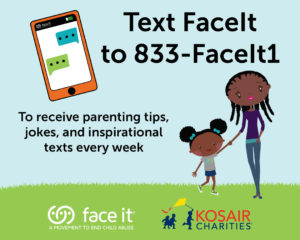Kentucky Data Dashboard
This data dashboard uses 2014 as the baseline timeframe for comparable data over time, even though the Face It Movement officially began its work in Jefferson County in 2013. To see whether there has been a steady trend or fluctuating change in the data since the baseline timeframe, please click on the View Data buttons.










 Data source and notes: Kentucky Cabinet for Health and Family Services, Department for Community Based Services. Data as of March 2022. Data for SFY2020 will be updated after pending cases are finalized. Data portrays children that died or were placed in serious or critical condition as a result of child abuse or neglect, as determined by DCBS. Data includes cases that had prior involvement with DCBS and those that did not. Please note for comparable statewide data over time, SFY 2017 was used as a baseline.
Data source and notes: Kentucky Cabinet for Health and Family Services, Department for Community Based Services. Data as of March 2022. Data for SFY2020 will be updated after pending cases are finalized. Data portrays children that died or were placed in serious or critical condition as a result of child abuse or neglect, as determined by DCBS. Data includes cases that had prior involvement with DCBS and those that did not. Please note for comparable statewide data over time, SFY 2017 was used as a baseline.











